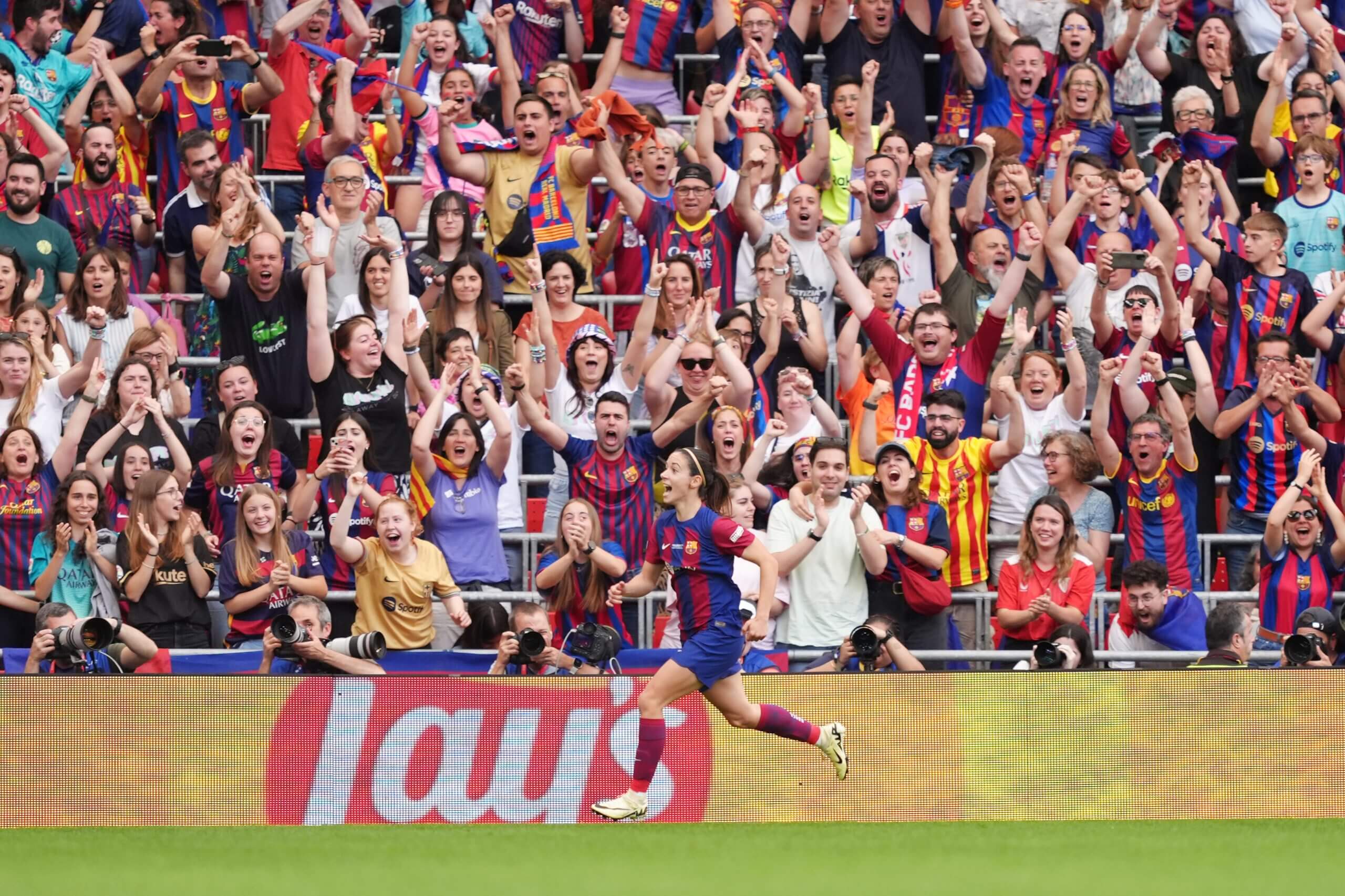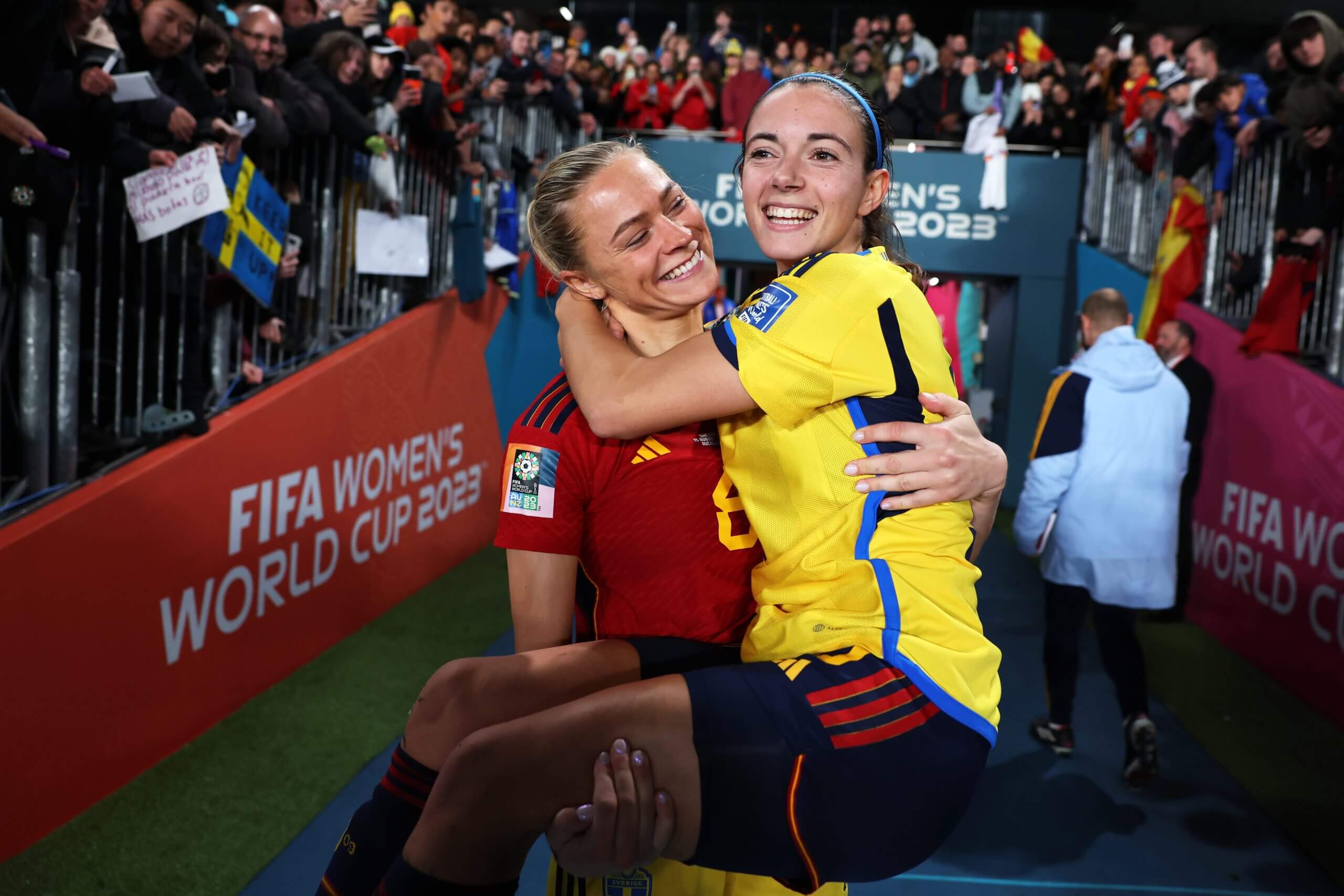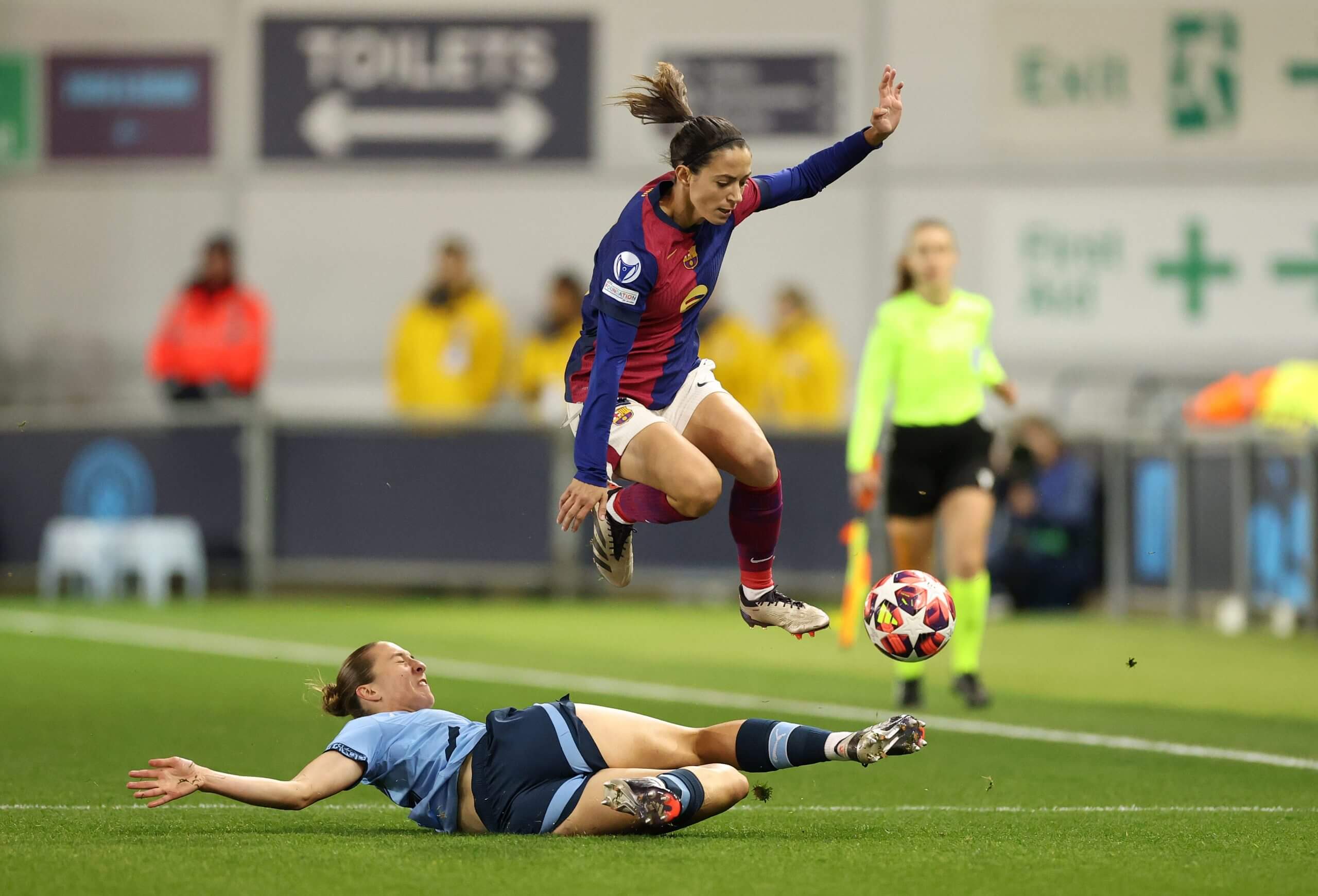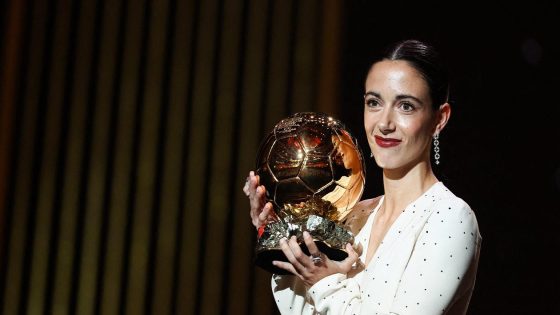For the fourth year in a row, the women’s Ballon d’Or has been won by a Barcelona and Spain midfielder.
In 2021 and 2022 it was awarded to Alexia Putellas; in 2023 and 2024 it has been awarded to Aitana Bonmati. It would be easy — and to a certain extent, perfectly reasonable — to consider this a quartet of successes for the same type of footballer, the same footballing approach.
But Bonmati is a very different footballer to Putellas. She is more subtle, more scheming, more interesting. In fact, given the relative lack of big personalities in the running for the men’s award, and the sense that this is something of a fallow period of world-class players now Lionel Messi and Cristiano Ronaldo are playing outside the elite leagues, Bonmati might be the world’s most intriguing footballer.
Bonmati’s rise into the world’s most revered footballer represents the evolution of the women’s game in a tactical sense; it has moved away from individualism and towards collectivism. Until relatively recently, the standout attackers exerted undue dominance over matches; they were physically and technically superior to team-mates and opponents, and could run riot single-handedly.

That simply doesn’t happen as much these days, and it’s not because footballers are getting worse. It’s because the organisation of matches is more sophisticated, the tactical plans are more complex and breaking down opponents requires more intelligence.
Last year’s Women’s World Cup was notable for the relative lack of standout individuals. Bonmati was the best player in the tournament and, against weaker group stage opponents, had the impact you expect of the best player’s in the women’s game, levels above her opponents, dribbling past opponents and scoring.
But in the tighter knockout stage matches — when closely shackled by the Netherlands’ Jackie Groenen, for example — it became clear that even the world’s best footballer was forced to drop off, play simple passes and remain patient. She played for the team, rather than the team playing for her. There’s no real ‘taking the game by the scruff of the neck’ these days.
The previous winners of the Ballon d’Or were Ada Hegerberg (a classic No 9 with incredible goalscoring numbers), Megan Rapinoe (a goalscoring, dribbling wide attacker) and Putellas (capable of beating opponents at will and scoring from distance). Classic ‘best player in the world’ material. Bonmati is very different: deeper, calmer, focused on subtle dominance of matches. A two-minute YouTube showreel won’t fully capture her brilliance.
There have been world-class central midfielders before, of course, but perhaps not someone quite on Bonmati’s level, in part because the style of football games didn’t require footballers of Bonmati’s style. To use an analogy that might be best understood in Spain, where the latter is hugely popular, Putellas’ style is ‘tennis’ — individualism, explosiveness, technical brilliance — and Bonmati’s is ‘padel’ — teamwork, patience, tactical intelligence in tight spaces. They are very different players on the pitch, and not close away from it.
Bonmati is a curious figure; not overly concerned with stardom but not exactly shy either. Instead, she’s focused on being herself, more so than winning friends or social media followers. The daughter of two teachers, she is more studious and thoughtful than her peers and is not, despite her status, necessarily one of the most popular players in the Barcelona dressing room — others have found her sheer intensity difficult to cope with, particularly when Barca thrash opponents by several goals and Bonmati is still demanding more.
She appears on closest terms with the (relatively few) foreign players at the club. Some adore her. After Spain beat Sweden 2-1 in last year’s World Cup semi-final, she and Barcelona team-mate Fridolina Rolfo swapped shirts, joyously embraced, chatted for a couple of minutes and posed for slightly unusual post-match photos. This angered some Swedish fans, who questioned why Rolfo looked so elated after a semi-final defeat.

Whereas most of her team-mates live in, or close to, Barcelona itself, Bonmati still resides in her hometown of Sant Pere de Ribes, 40km south of the city, and spends time with childhood friends in the town square. She seems happiest as something of an outsider, which feels quite familiar from the way people used to speak about Pep Guardiola in his playing days in the 1990s — thoughtful, football-obsessed, but certainly not a people-pleaser. Guardiola was regularly described as ‘dressing in all-black’ in his playing days to emphasise his slightly removed and gloomy nature; Bonmati’s outfit when winning UEFA’s Player of the Year award last year fits the bill.

Curiously, some of the only dissenting voices with regard to Bonmati’s Ballon d’Or come from those who follow Barcelona closely; not because they think Bonmati is overrated, but because they think team-mate Caroline Graham Hansen is underrated. That still offers good evidence of Bonmati’s influence — her only rival is the footballer who plays directly to her right.
Graham Hansen’s problem is that the women’s game is still consumed more widely on an international level rather than a club level, and her Norway side bombed at both Euro 2022 and World Cup 2023. Week-in, week-out brilliance for Barcelona (21 goals and 19 assists in the equivalent of 19 league games last season) doesn’t really register globally, and there are only five Champions League knockout games in which to prove yourself on a wider stage.
In contrast, Bonmati’s calendar year included not only the World Cup campaign in which she was voted the world’s best player, but also a Nations League victory where she scored goals in both semi-final and final. They were almost identical, meeting left-wing crosses with a finish on the run at the far post, the classic art of ‘arriving’ at the right time in the box. “You either have it or you don’t,” she says. Putellas’ injury problems have meant Bonmati has taken on more responsibility in the final third, and she is capable of deciding games as well as dictating them.

Bonmati is partly a purer ‘Barca’ player than Putellas because of her background — Bonmati has always played for the club, while Putellas played for city rivals Espanyol and then Levante beforehand, at a time when Barcelona didn’t have serious structure for women’s football. It’s also because Bonmati’s family are proud Catalans. Her social media channels haven’t featured overt political declarations, but she’s vocal around Catalan cultural festivities.
Even her name is of interest. In keeping with Spanish naming customs, she uses both her surnames (Bonmati Conca), but was one of the first people in the country to use her maternal surname ahead of her paternal surname. Indeed, her mother received national media coverage for being a leading advocate in the campaign to change Spanish law and allow maternal names first; before that was legal, she found a temporary workaround by saying she was a single mother.
Clearly, Bonmati was brought up to do things differently. Because she returned to the national side rather than boycotting the World Cup (unlike, for example, teammates Mapi Leon and Patri Guijarro) she was automatically considered one of the ‘softer’ rebels. But Bonmati was initially amongst the biggest objectors to the way the side was treated by the Spanish federation, and has continued to protest about how nothing in Spain has changed since Spain’s World Cup win.
“We are stagnating, it’s not getting any better,” she said in an interview with The Athletic last month. “We don’t even have a sponsor in the league. What interest is being put into this league? Who is running this league? Maybe we should be more humble, take the example of the English league and see how they do things. And in the national team the same. If the changes don’t come, it’s a sign that the people who run this league are not interested in moving forward.”
Meanwhile, Bonmati speaks about the technical and tactical side of football with a staunch ideological manner probably not seen at the club since Xavi. The Barcelona men’s side have been inconsistent in recent years, in terms of results and style, but the women’s side have picked up the slack. At club level Bonmati wears No 14 as a reference to Johan Cruyff, while at international level her No 6 was the Barca shirt number of Xavi (although he and Andres Iniesta, No 8, switched numbers for Spain). She knows the game better than most footballers of either gender.

There are world-class footballers who are simply very good at football. Then there are world-class footballers who feel like they might genuinely change the game. In a documentary about Bonmati screened earlier this year on Catalan television channel TV-3’s Sense Ficcio programme, Guardiola is seen joking with her that one day, he wants to be Barca’s president, and if that happens, he will hire her as the club’s sporting director. Maybe it wasn’t a joke.
Bonmati is only 26, and a long way off thinking about her post-playing days. But, nevertheless, she has the intelligence, the personality and the status to be in some way revolutionary after her retirement: perhaps the first successful female coach in the men’s game, for example. On one hand, Bonmati is the best symbol of the women’s game; on the other, she might be a key individual in demonstrating that the men’s game and the women’s game are not separate.
(Top photo: Eric Alonso/Getty Images)





